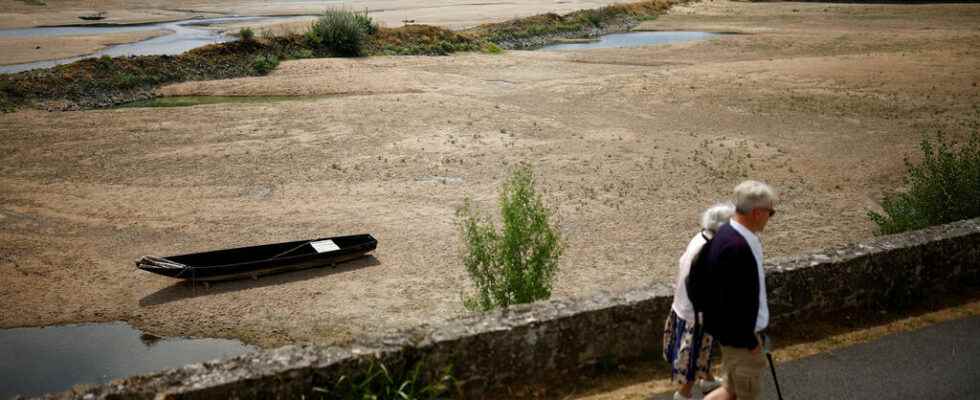Record heat waves for the summer of 2022 in France, with three heat waves and 33 days in total: according to a new report from Météo France published on Tuesday August 30, this is a “ foreshadowing of a future marked by climate change and its attendant fires, droughts and other deadly storms.
At 2.3°C above the normals for the period 1991-2020, the summer of this year of 2022 settles in the second place of summers (June-July-August in meteorology) the hottest in metropolitan France since the start of the measurements in 1900, Météo France announced on Tuesday.
It was only surpassed by the summer of 2003 (2.7°C above normal), but the year of the great heat wave is often considered a ” ufo weather “.
From now on, the effects of global warming are being felt more and more: of the last eight summers, six have been in the ” top 10 “.
” a foreshadowing of the future, underlined Samuel Morin, director of the National Meteorological Research Center of Météo France, presenting this assessment. Around 2050, it is expected that about half of the summers will be of a comparable or even higher temperature level “. And this, even if the greenhouse gas emissions that cause global warming are contained.
As in recent months, the consequences are dramatic: devastating fires including in areas hitherto spared, widespread droughts and amplification of sometimes deadly weather phenomena, storms or floods.
Records shattered
The first episode of heat wave hit in June, the earliest ever seen in the country, followed by two others of 14 days each in July and August. A total duration of 33 days, unheard of: “ A long, trying, difficult summer summed up Matthieu Sorel, climatologist at Météo France.
Due to this, the records fell by the shovel: 87 maximum temperatures exceeded locally, pulverizing many records in the West and on the Atlantic coast, often by several degrees.
But also 86 minimum temperature records, with many “ tropical nights “. During this phenomenon, the mercury does not drop below 20°C, harming the organisms, deprived of recovery. For example, Nice (South-East) has just experienced its 61st tropical night in a row.
►Also read : Drought in France: restrictions and controls are increasing
The absolute daytime record, 43°C, was reported in Arcachon (far from 46°C in June 2019 in Vérargues in Hérault). But the thermometer flew to the Opal Coast, with 39.9°C in Le Touquet on July 19.
Mega-fire and even in places not exposed so far
Combined with the lack of rain, the heat favored the drought that affects almost the entire country and made the vegetation particularly flammable. Results : a dark season of forest fires with 62,000 hectares ravaged since the beginning of the year, against an average of 8,500 at the same time, according to data from the European Forest Fire Information System (EFFIS).
The country has experienced unusual fires, such as that of Landiras, in the south of the Gironde, a “ mega fire » which burned more than 20,000 hectares twice and over a period of one month. And fires even in places that we did not imagine exposed, such as the mythical Breton forest of Brocéliande.
” The summer we have just spent is a powerful wake-up call »
Other victim of the drought, the agricultural worldwith certain harvests expected to decline (-18% for corn, -20% for potatoes), leading the government to release aid.
Public opinion was also marked by impressive stormy episodes that killed five people in Corsica August 18. If such exceptional weather phenomena are not directly attributable to climate change, it makes them ” increasingly frequent, severe and intense “recalls Samuel Morin.
As a result, between the repeated heat waves and the energy crisis, the climate issue was invited into the political debate at the start of the school year, with the executive calling in particular for ” sobriety “.
” The summer we have just spent is a powerful wake-up call “, thus launched Monday, August 29, Prime Minister Elisabeth Borne, a few days after President Emmanuel Macron estimated that the country was facing a “ big seesaw “.
But the left opposition, like environmental NGOs, accuses the executive of not doing enough.
► To listen also: Deadly storms in Corsica: “These phenomena are extremely difficult to predict”
(With AFP)
